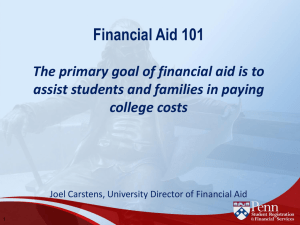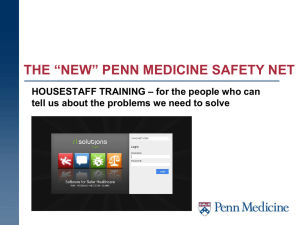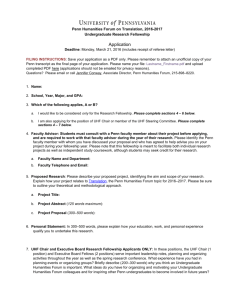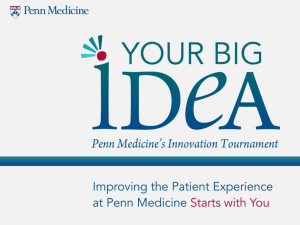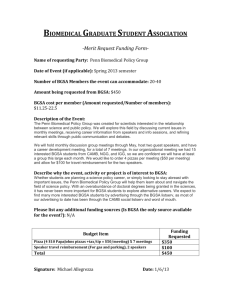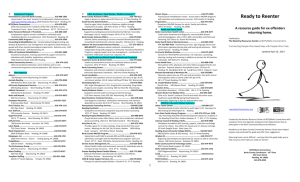Berks Faculty Senate Student Life Committee
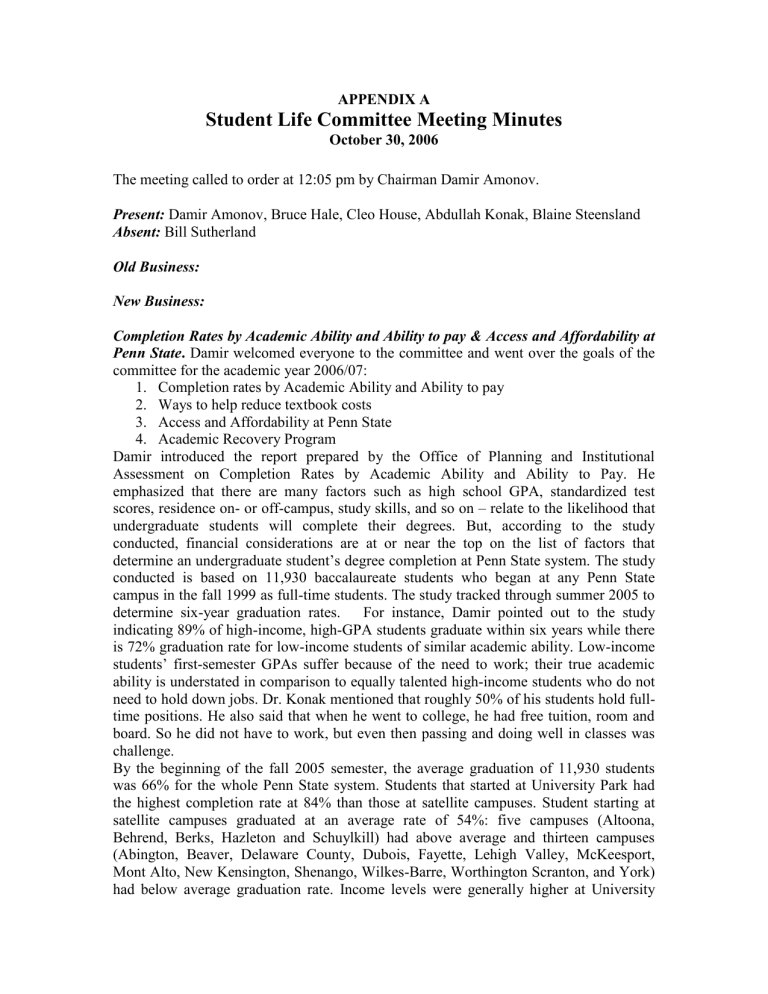
APPENDIX A
Student Life Committee Meeting Minutes
October 30, 2006
The meeting called to order at 12:05 pm by Chairman Damir Amonov.
Present: Damir Amonov, Bruce Hale, Cleo House, Abdullah Konak, Blaine Steensland
Absent: Bill Sutherland
Old Business:
New Business:
Completion Rates by Academic Ability and Ability to pay & Access and Affordability at
Penn State. Damir welcomed everyone to the committee and went over the goals of the committee for the academic year 2006/07:
1.
Completion rates by Academic Ability and Ability to pay
2.
Ways to help reduce textbook costs
3.
Access and Affordability at Penn State
4.
Academic Recovery Program
Damir introduced the report prepared by the Office of Planning and Institutional
Assessment on Completion Rates by Academic Ability and Ability to Pay. He emphasized that there are many factors such as high school GPA, standardized test scores, residence on- or off-campus, study skills, and so on – relate to the likelihood that undergraduate students will complete their degrees. But, according to the study conducted, financial considerations are at or near the top on the list of factors that determine an undergraduate student’s degree completion at Penn State system. The study conducted is based on 11,930 baccalaureate students who began at any Penn State campus in the fall 1999 as full-time students. The study tracked through summer 2005 to determine six-year graduation rates. For instance, Damir pointed out to the study indicating 89% of high-income, high-GPA students graduate within six years while there is 72% graduation rate for low-income students of similar academic ability. Low-income students’ first-semester GPAs suffer because of the need to work; their true academic ability is understated in comparison to equally talented high-income students who do not need to hold down jobs. Dr. Konak mentioned that roughly 50% of his students hold fulltime positions. He also said that when he went to college, he had free tuition, room and board. So he did not have to work, but even then passing and doing well in classes was challenge.
By the beginning of the fall 2005 semester, the average graduation of 11,930 students was 66% for the whole Penn State system. Students that started at University Park had the highest completion rate at 84% than those at satellite campuses. Student starting at satellite campuses graduated at an average rate of 54%: five campuses (Altoona,
Behrend, Berks, Hazleton and Schuylkill) had above average and thirteen campuses
(Abington, Beaver, Delaware County, Dubois, Fayette, Lehigh Valley, McKeesport,
Mont Alto, New Kensington, Shenango, Wilkes-Barre, Worthington Scranton, and York) had below average graduation rate. Income levels were generally higher at University
Park, with the lowest income levels at the thirteen campuses with below-average graduation rates.
Damir mentioned that Penn State is the most expensive public school in the
United States. At this point, Penn State is getting less and less funds from Pennsylvania
State and relying more and more on tuition revenue and alumni donations; Penn State is becoming more and more private. For instance, last year the tuition increased by about
5.5% after much collective effort by Student Governments across all Penn State campuses and Penn State politicians such as Dr. Spanier actively participating in Rally at the Rotunda that eventually got about 6% funding from the State. Moreover, Student
Activity Fees went up from $49 to $54. Damir said that there is not much the committee can do on a larger scale to help freeze the tuition since it has to be a collective effort on a large scale, but definitely a committee can try to change some things to make Penn State more accessible for all levels of students. Damir pointed out that Penn State is not big on scholarships; however, the school does provide scholarships to students from time to time. He also emphasized that there is a common lack of knowledge among the average student body on scholarships. He recommended to the committee that maybe some common knowledge or list of scholarships should be provided to current students and incoming freshmen as part of their orientation. In that case that may give some form of incentive to students from lower-income families to work hard toward a scholarship and the incentive to keep up the GPA. Dr. Steensland mentioned that about 300 Berks students receive scholarships and Berks is under-funded by University Park to provide sufficient amount of scholarships to the student body. He also mentioned that Christopher
Britton is in charge of raising scholarship revenues and Judy Rile is in charge of scholarship information and appropriations. Dr. Hale recommended that there should be more Academic Support to incoming freshmen and current students such as Learning center and Advising.
Ways to help reduce textbook expenses for students. Damir pointed that reducing textbook costs is another way a committee can achieve to make Penn State more accessible. He went over Textbook Pricing Information prepared by Phillip Marshall, bookstore manager. The publisher gets 67%, author 9%, freight company 2.5%, revenue given to university 9%, bookstore 12.5% of one book sale. Students have a right to sell their books at the end of a semester at 50% of the original price and then the bookstore can sell the book at 75% of the original price. Now, how can we reduce the textbook costs? If we have the faculty turning in their book orders as early as possible in the semester, then that would allow the bookstore to order used books from a freight company while the supply lasts for the next semester. Therefore, it is critical that the faculty turns in their textbook orders early so that gives sufficient time for bookstore to order used textbooks (used textbooks get sold quickly). Damir also mentioned that Phillip has been actively trying to get the entire faculty to turn in their orders by contacting division heads, cooperating with Student Government, and sending out emails to the whole faculty. His plan is to get about 100% textbook orders in around Thanksgiving time.
Open Forum.
Damir said that he would like to hold another meeting to discuss Academic
Recovery before the Faculty Senate in November.
Adjournment. The meeting was adjourned at 12:55pm.
Respectfully Submitted,
Damir Amonov
Berks Faculty Senate Student Life committee chairman

